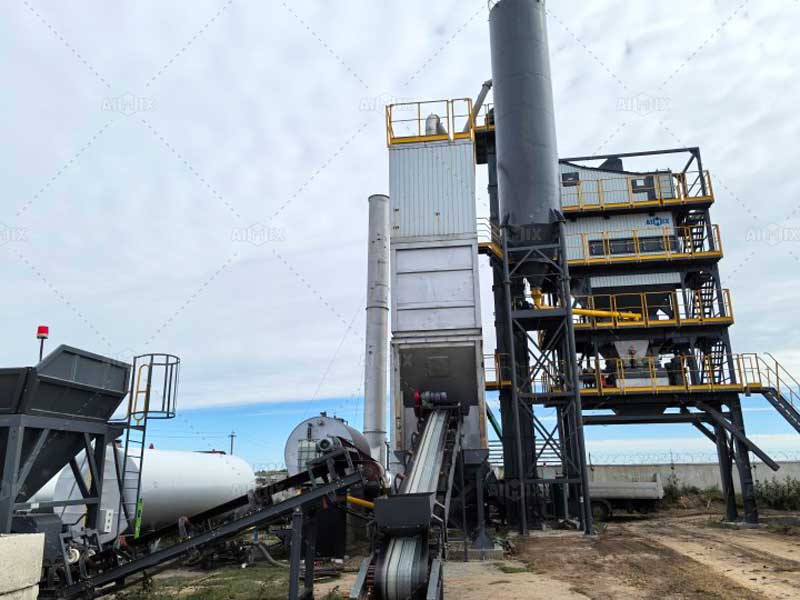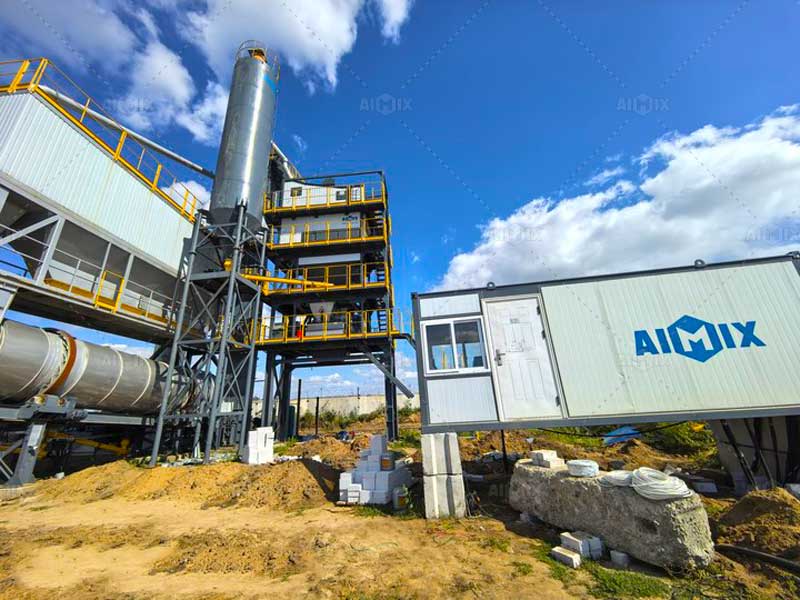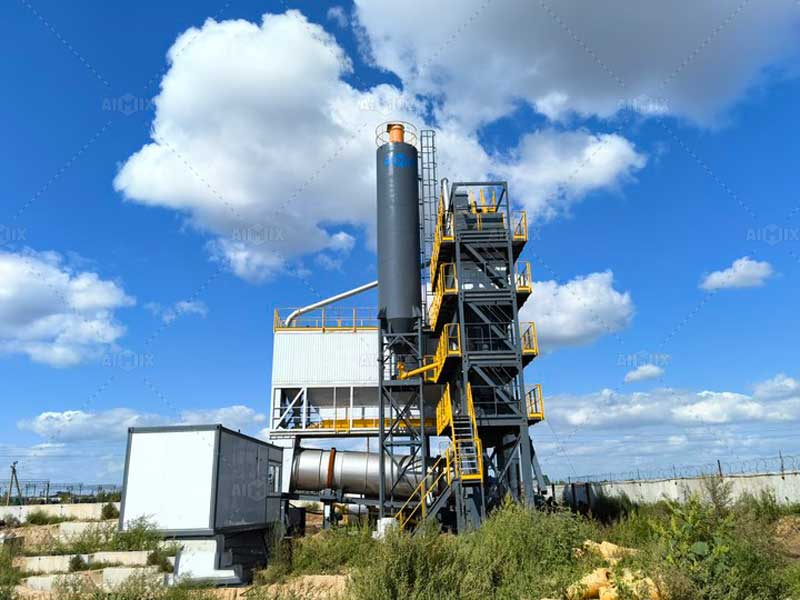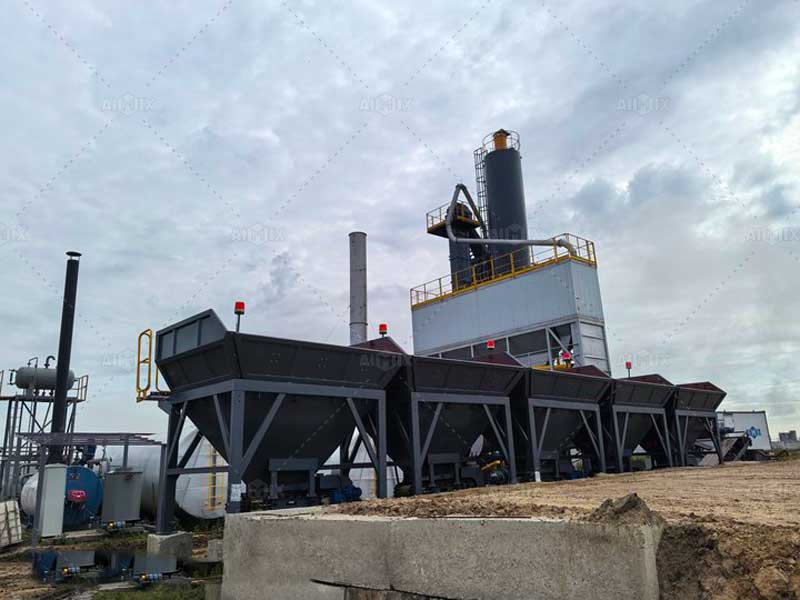In road construction projects involving multiple crews working at different times or in separate locations, project managers often ask: can a single large-capacity asphalt plant for sale support several paving teams without causing delays or wasting material? This question is especially relevant when considering a 160 TPH stationary asphalt mixing plant. In this article, we explore the real-world viability of using a 160 TPH asphalt plant to support multiple paver crews operating on staggered schedules.

Understanding the Demands of Multi-Crew Operations
When you manage multiple paver crews, your project dynamics change. Asphalt needs to be ready when each crew begins work. But with different start times and locations, coordinating material supply becomes more complex. At the same time, you must avoid overproduction, material cooling, or equipment downtime.
In this context, the plant’s production capacity must not only meet the peak demand but also allow for flexibility and rapid adjustments. That’s where a high-capacity 160 TPH hma plant enters the picture.
Staggered Schedules: What Challenges Do They Present?
Staggered schedules usually mean that crews begin paving at different hours, often due to site constraints, traffic planning, or weather conditions. Each crew still needs a consistent, high-quality asphalt supply to avoid cold joints or paver delays. Therefore, your asphalt plant must operate with excellent responsiveness and storage capabilities.

Why a 160 TPH Asphalt Plant Offers an Advantage
Compared to 60 or 80 TPH models, a 160 TPH plant provides a higher buffer of productivity. This means it can produce enough asphalt for one crew quickly, pause or slow down, and then ramp up again when another crew is ready. This flexibility helps maintain asphalt temperature and quality while reducing idle time.
Moreover, a larger asphalt batch mix plant usually includes a bigger hot storage silo. This feature is critical. You can produce in bulk ahead of time and release material as each crew begins their shift. This is especially useful for night work or when supply trucks face road delays.
Supporting Multiple Pavers Without Overproducing
One of the biggest risks of running a large-capacity plant is overproduction. However, if your project involves multiple teams paving across the day or in different zones, this risk turns into an advantage. A 160 TPH plant allows you to meet peak demands without needing multiple smaller plants on-site. It simplifies logistics and reduces overall costs per ton.

Is It Always the Right Fit?
Despite its advantages, a 160 TPH plant isn’t suitable for every scenario. If you’re running small jobs or remote village roads where production needs stay under 40–50 tons per hour, the plant might be underused. However, for national road projects, toll roads, or urban overlays where coordination between crews is essential, the scale and control of a 160 TPH plant can be a game-changer.
Additionally, pairing the plant with a well-designed bitumen heating system and intelligent control software makes it easier to adjust production dynamically throughout the day. This setup minimizes waste and supports continuous quality.
Logistical Considerations
To make a 160 TPH plant truly viable for staggered operations, the logistics chain must also be reliable. That includes having enough dump trucks, storage silos, and fuel supply. Many of our clients overcome this challenge by stationing the plant strategically and coordinating trucking shifts based on crew schedules.

Conclusion: A Smart Investment for Scalable Projects
If you manage medium to large-scale road projects with multiple paver crews or shifting work hours, investing in a 160 TPH asphalt plant is not only viable—it’s often the most efficient solution. Its capacity, flexibility, and compatibility with modern production control systems give you the edge in meeting deadlines and maintaining paving quality.
Work With a Partner That Understands On-Site Realities
At AIMIX, we’ve helped dozens of clients in Indonesia and beyond deploy asphalt mixing plants that match their exact project scale. From design consultation to on-site installation and after-sales service, we make sure every plant delivers maximum performance under real construction conditions.
Need help deciding if a 160 TPH plant is the right fit for your project? Contact us today. Our local team is ready to visit your site, analyze your paving schedule, and offer a solution tailored to your needs. Get to know the asphalt mixing plant price at right!